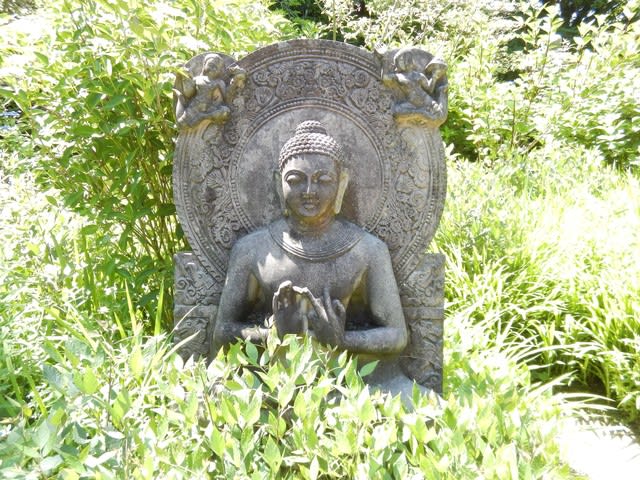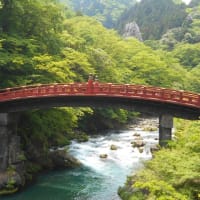
Let us now consider the newly emerging powers Germany and Russia. These two countries rose to prominence as they were used by Britain to suppress France, but they developed industry for their own needs, and as a result, movements to seek democracy, markets, and resources arose. However, as they were latecomers, they had no choice but to respond in a coercive and combative manner. The United States is also a latecomer, but due to its vast land area, abundant resources, and geographical location, it was able to act more freely than Europe, and a frontier culture developed. However, this did not prevent the Civil War. This was probably due to the influence of Britain. Latecomers Russia and Germany also needed to change the state of the world system in order to achieve their own goals , and since these latecomers were reforms from above, with a conservative nature, they also needed to control the domestic situation. After the Napoleonic Wars, Russia briefly assumed a leading position in Europe (during the reign of Alexander I), but this resulted in the Decembrist Rebellion, which was a bourgeois democratic demand, and then Nicholas I's reactionary politics. The Crimean War challenged the world system and the failure of the rebellion led Russia to move towards democratization and industrialization again (during the reign of Alexander II and III). However, this did not last in Russia due to repeated terrorist attacks, and a reactionary government emerged (Nicholas II), leading to the Russo-Japanese War and World War I. Looking at it this way, we can see that in the case of Russia, periods of domestic reform and global expansion alternated. During this period of global expansion, Russia mainly caused friction with Britain, but the main expansion had already ended during the reign of Peter I, and was due to the pursuit of resources (such as furs) and the flight of peasants from within the country, but the expansion into Manchuria, Central Asia, and Ottoman Turkey seems to have been in search of trade or by heading for the sea.
The Pax Britannica era was the period following the end of the Long War between England and France (Second Hundred Years' War), during which Russia, due to its domestic situation, began to appear as a disruptor of the world system. England and Russia fought in Eurasia for a while, and Russia stood in the way of England as a power to replace France. However, after defeats in the Crimean War (1851), the Russo-Turkish War (1872), and the Russo-Japanese War (1905), and civil wars in Russia, England gained a cooperative relationship with Russia and entered the First World War. In this light, the conflict between England and Russia may have had an aspect of a proxy war between England and France, a rival country. Pax Britannica was threatened by the industrial development of Germany and America, but Germany and America rose to power in the 1870s, and if Pax Britannica began in 1815, then there are roughly 55 years between the two. During this time, it was Russia that stood in Britain's way militarily in various ways, and France, which had been defeated in the Napoleonic Wars, was maneuvering skillfully behind the scenes. This point will be useful when looking at the relationship between the United States and Britain after World War II. Russia's geographical location may have been the reason it was able to compete with Britain even though it was industrially immature (and to some extent, France, Britain's former rival, may have supported Russia). This may still be the case today. Russia's ability to exert a great influence on international politics even though it is industrially immature is likely to remain unchanged even today, as long as it has the support of forces that seek to rival the hegemonic nations of the world system.
Now, Germany is a latecomer after Britain and France, with a small land area, insufficient resources, and oppressed by its geographical location (the opposite of the United States and Russia). Germany is a country that was formed in the process of growing as a barrier against France. However, its prototype seems to be the Holy Roman Empire. The surrounding great powers considered Germany a buffer zone for their own convenience and did not want the Holy Roman Empire to be revived. It may also have been because the citizens of the small German states were democratic. Russia, Prussia, and Austria viewed the German states as a buffer zone against the spread of the French Revolution. Politically, the German states were divided into small states, but economically, the German states were strengthening their ties. Prussia possessed the Rhineland, an industrially important exclave, and in that sense became the leader of northern Germany and formed the Northern German Customs Union. In a sense, the establishment of the German Empire may have been a template for the formation of the modern EU. However, the difference was that Prussia, the leader of the North German Customs Union, had its political base in East Prussia, and Prussia was a military state that had been formed as a bulwark against the French Revolution.
In addition to this, Germany's geographical location determined its fate. Located in the center of Europe, Germany had to repeatedly create friction with its surroundings in order to develop. There were many complex forces acting on Germany, including growing economic power, conservative political power, desire to expand, and the reaction of the world system called Pax Britannica. As a result, Germany's economy became a military state, due to the conservative atmosphere and pressure from all around, or in harmony with past success stories (Seven Years' War, Austro-Prussian War, Franco-Prussian War). The strong image of Germany as a scientific and military state may have been the reason why Germany's actions caused an excessive reaction from those around it. In Bismarck's time, Germany managed to cover this up with diplomacy, but compared to the United States and Russia, Germany was perceived as a scientific and military state, which may have been seen as a blatant challenge to Pax Britannica. It is also likely that Germany incurred great resentment from France, which relied on this world system.
Even as Germany expanded, it could not break away from its limited framework. For example, it did not have the idea of attacking Egypt like Napoleon. It also did not have the idea of taking advantage of the war in Europe to acquire interests outside of Europe like Britain did. Even though Germany was allied with Austria-Hungary and Ottoman Turkey during World War I, it seems that it did not even think about dominating the Middle East.* This may be because the British navy was still strong at that time and the control of the Mediterranean was important. This was also evident in Germany's attempt to reach Baku and Iran by land route during World War II, and the tactics of using U-boats extensively also seemed to be aimed at disrupting the control of the seas of the superior enemy.
* During World War I, Germany and Turkey dominated Iraq and Syria and had a great influence in Iran. However, because they operated on both the East and West fronts, it would have been difficult for them to take military action in the Middle East.
Germany was strongly militaristic from the history of its rise, but it was basically a land power, so being sandwiched between France and Russia may have been a threat. For Germany, its participation in World War I itself was probably an accident at first. However, the progress of the war itself showed Germany's limitations. Germany was a closed land power, and it was difficult to expand outside of Europe because it did not have a navy, so it sought a way out by either unifying Europe or expanding into eastern Eurasia by land. In World War II, freed from the threat of a pincer attack by Russia and France, it headed toward Africa (including Egypt) and Russia, but it seems that this hasty expansion into many directions was due to such German complexes. Now that it was not blocked, it wanted to conquer as much as possible.
Germany produced many talented people under such fateful historical pressure, but for some reason it did not have political power. Although it had a genius named Bismarck for a time, it was a country that did not easily have the power to purify itself, and this lack of power was clearly evident in the process of Hitler's rise and his policies, but the root of this may be that the power of this blocked country was carried by its past military glory and conservatism. After World War II, this blockage was lifted by cooperation with France and the EU, and the country lost its military glory due to two defeats and the crimes of the Nazis, and East Germany was separated for a long time. Modern Germany may be viewed with caution, but even if there was a backlash from history, it seems that it has developed a considerable democratic power to purify itself.
all rights reserved to M Ariake


























※コメント投稿者のブログIDはブログ作成者のみに通知されます